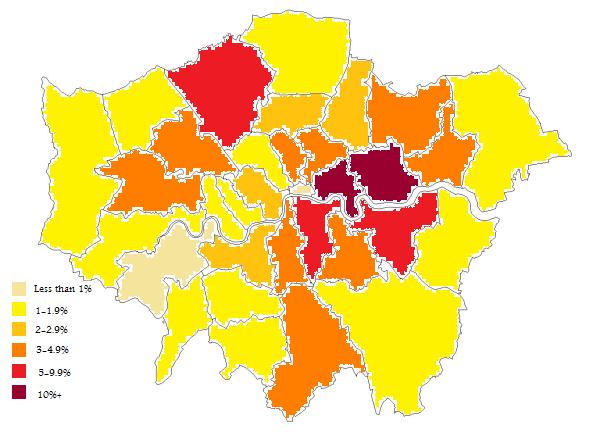I know this because I am clever and am not bound by the staid old thinking of the metropolitan liberal elite, with their love of frothy coffee and small data, and their hatred of struggling landowners in County Durham. I have defininitely not amended this insignificant holder blog post that I wrote over a decade ago to make myself look like a soothsayer.
Here is a list of all the seats that Boris Johnson will gain in the December 2019 election. I know that some of these seats don’t exist when you are reading this, but I am also very clever and can foresee what the Boundary Commission will do. Because of big data.
Ashfield: Conservative gain from Labour
Barrow and Furness: Conservative gain from Labour
Bassetlaw: Conservative gain from Labour
Birmingham Northfield: Conservative gain from Labour
Bishop Auckland: Conservative gain from Labour
Blackpool South: Conservative gain from Labour
Blyth Valley: Conservative gain from Labour
Bolsover: Conservative gain from Labour
Bolton North East: Conservative gain from Labour
Bridgend: Conservative gain from Labour
Burnley: Conservative gain from Labour
Bury North: Conservative gain from Labour
Bury South: Conservative gain from Labour
Carshalton and Wallington: Conservative gain from Lib Dem
Clwyd South: Conservative gain from Labour
Colne Valley: Conservative gain from Labour
Crewe and Nantwich: Conservative gain from Labour
Darlington: Conservative gain from Labour
Delyn: Conservative gain from Labour
Derby North: Conservative gain from Labour
Dewsbury: Conservative gain from Labour
Don Valley: Conservative gain from Labour
Dudley North: Conservative gain from Labour
Durham North West: Conservative gain from Labour
Eastbourne: Conservative gain from Lib Dem
Gedling: Conservative gain from Labour
Great Grimsby: Conservative gain from Labour
Heywood and Middleton: Conservative gain from Labour
High Peak: Conservative gain from Labour
Hyndburn: Conservative gain from Labour
Ipswich: Conservative gain from Labour
Keighley: Conservative gain from Labour
Kensington: Conservative gain from Labour
Leigh: Conservative gain from Labour
Lincoln: Conservative gain from Labour
Newcastle-under-Lyme: Conservative gain from Labour
Norfolk North: Conservative gain from Lib Dem
Penistone and Stocksbridge: Conservative gain from Labour
Peterborough: Conservative gain from Labour
Redcar: Conservative gain from Labour
Rother Valley: Conservative gain from Labour
Scunthorpe: Conservative gain from Labour
Sedgefield: Conservative gain from Labour
Stockton South: Conservative gain from Labour
Stoke-on-Trent Central: Conservative gain from Labour
Stoke-on-Trent North: Conservative gain from Labour
Stroud: Conservative gain from Labour
Vale of Clwyd: Conservative gain from Labour
Wakefield: Conservative gain from Labour
Warrington South: Conservative gain from Labour
West Bromwich East: Conservative gain from Labour
West Bromwich West: Conservative gain from Labour
Wolverhampton North East: Conservative gain from Labour
Wolverhampton South West: Conservative gain from Labour
Workington: Conservative gain from Labour
Wrexham: Conservative gain from Labour
Ynys Mon: Conservative gain from Labour
 It probably shouldn’t surprise anyone that Boris Johnson has today announced that he will be scrapping the Western Extension of the Congestion Charge. We noted before that there had been straws in the wind in the opposite direction and that Johnson had been modifying his language and moving towards the ‘third option’ of the modification of the charge – and indeed even as late as yesterday the Evening Standard, normally a good barometer of the mayoral climate, was bigging up the compromise option. But despite this, and blue Boris trying to present himself as green Boris as recently as Tuesday, the candidate’s hyperbole over the western extension had simply been too great for any kind of credible u-turn to be executed with any kind of credibility.
It probably shouldn’t surprise anyone that Boris Johnson has today announced that he will be scrapping the Western Extension of the Congestion Charge. We noted before that there had been straws in the wind in the opposite direction and that Johnson had been modifying his language and moving towards the ‘third option’ of the modification of the charge – and indeed even as late as yesterday the Evening Standard, normally a good barometer of the mayoral climate, was bigging up the compromise option. But despite this, and blue Boris trying to present himself as green Boris as recently as Tuesday, the candidate’s hyperbole over the western extension had simply been too great for any kind of credible u-turn to be executed with any kind of credibility.

 What was your reaction when you heard that the BNP’s membership list
What was your reaction when you heard that the BNP’s membership list  As we race inexorably towards Christmas and the new year, we are also moving towards the run-up to a new electoral cycle, with European elections and a round of local government polls due in May 2009 – what a political scientist would describe as a collection of
As we race inexorably towards Christmas and the new year, we are also moving towards the run-up to a new electoral cycle, with European elections and a round of local government polls due in May 2009 – what a political scientist would describe as a collection of 


